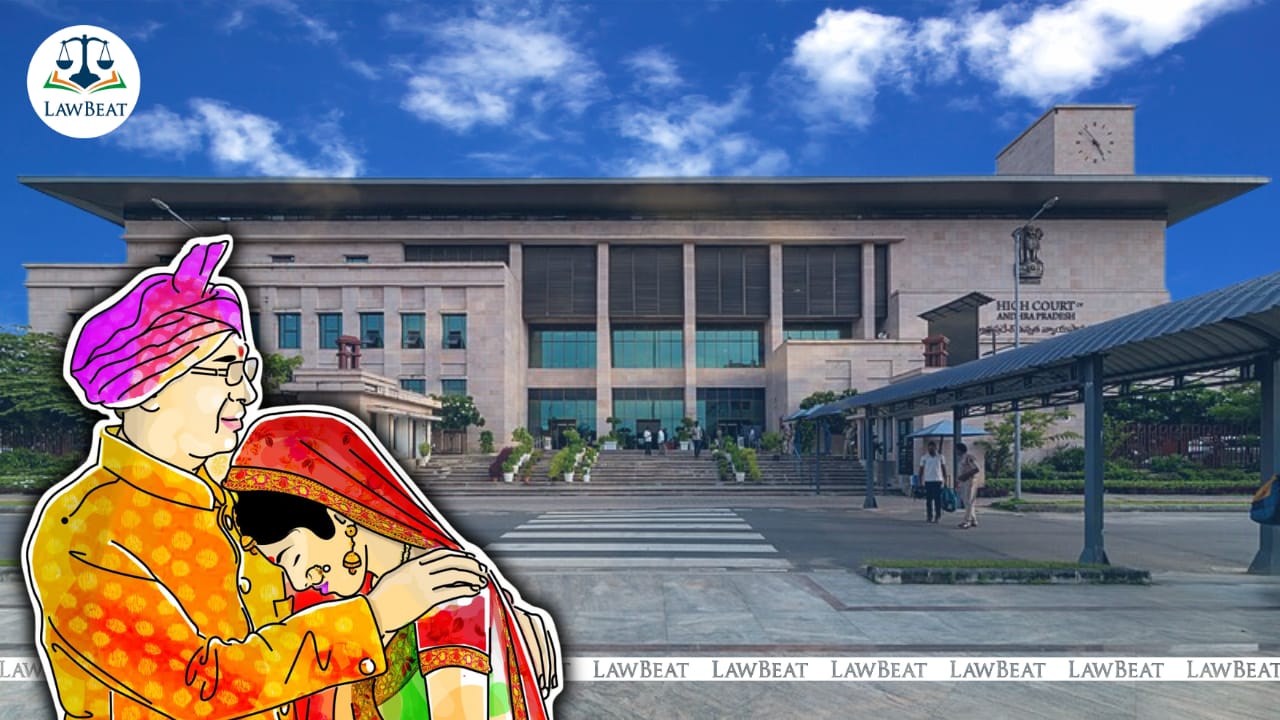Married Daughter Does Not Cease to be a Member of her Parents’ Family : Andhra Pradesh HC

The court criticised the compassionate appointment policy, calling it arbitrary and discriminatory for disqualifying married daughters while applying no such restriction to married sons
The Andhra Pradesh High Court, while allowing compassionate appointment for a married daughter, dependent on the deceased government employee, observed that “the sons and daughters whether they are unmarried or married, they are part of the family of their parents for the entire life…Because of her marriage the daughter would not cease her status as member of the family of her parents.”
Justice K. Manmadha Rao, presiding over the court, delivered the verdict while examining a case challenging a State policy that differentiated between married sons and daughters concerning compassionate appointments. The policy deemed married daughters ineligible solely based on their marital status.
The petitioner sought compassionate appointment following her father’s death, a regular sweeper at the respondent temple. Although she obtained a succession certificate in 2016, the temple’s Executive Officer also required proof of her divorce to support her request for compassionate appointment on the grounds of desertion by her husband. Unable to produce this document, her request was rejected. On March 20, 2021, she submitted a new request for compassionate appointment. However, no action was taken, leading her to file the present writ petition.
The respondents argued the petitioner failed to prove dependency on her father at his death, a requirement under G.O.Ms. No. 350 dated July 30, 1999. Consequently, her request for a compassionate appointment was declined on July 9, 2018. The petitioner, however, argued that similar cases had allowed compassionate appointments for married daughters, while the respondents maintained she did not qualify and sought dismissal of the petition.
The court learned that, according to a 1999 State government order, a married daughter could be considered for compassionate appointment only if there were no competing claims from the deceased employee's spouse or other children and if the married daughter was financially dependent on her parent. However, denouncing the policy’s biased approach, the court noted, “the married daughters are declared as ineligible on the ground that she is married. Showing discrimination towards 'married daughter' because she is being married as and when there is no such ineligibility applicable to a 'married son' appears to be arbitrary and discriminatory.”
The court highlighted that the object of compassionate appointments is a social security measure to support the families of government employees who die in service. “While the State Government and its instrumentalities implementing the scheme of compassionate appointments ot help the destitute families of the deceased employees, but incorporating such clause in eligibility criteria discriminating the daughters, who are being married is appears ot be illegal and unjust,” the court stated.
The court observed that marital status should not affect eligibility, as it unfairly discriminates against married daughters, who may still be the primary caregivers for their deceased parent’s family. The court held that the denial of compassionate appointment to the petitioner was “ilegal and arbitrary.”
Therefore, ruling in favour of the petitioner, the court ordered the temple authorities to appoint her to the sweeper position previously held by her father or a suitable equivalent post, with service benefits effective from the date of her father’s death. However, the Court clarified that she would not receive back pay, citing the principle of “no work, no pay.”
Cause Title: Siripalli Ammulu v. The State of Andhra Pradesh and Others [W.P.No. 7059/2021]
Appearances : Advocate DV Sasidhar represented the petitioner, while Standing Counsel K. Madhva Reddy appeared for the State's Endowments Department.
